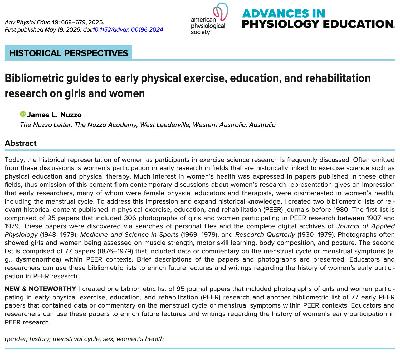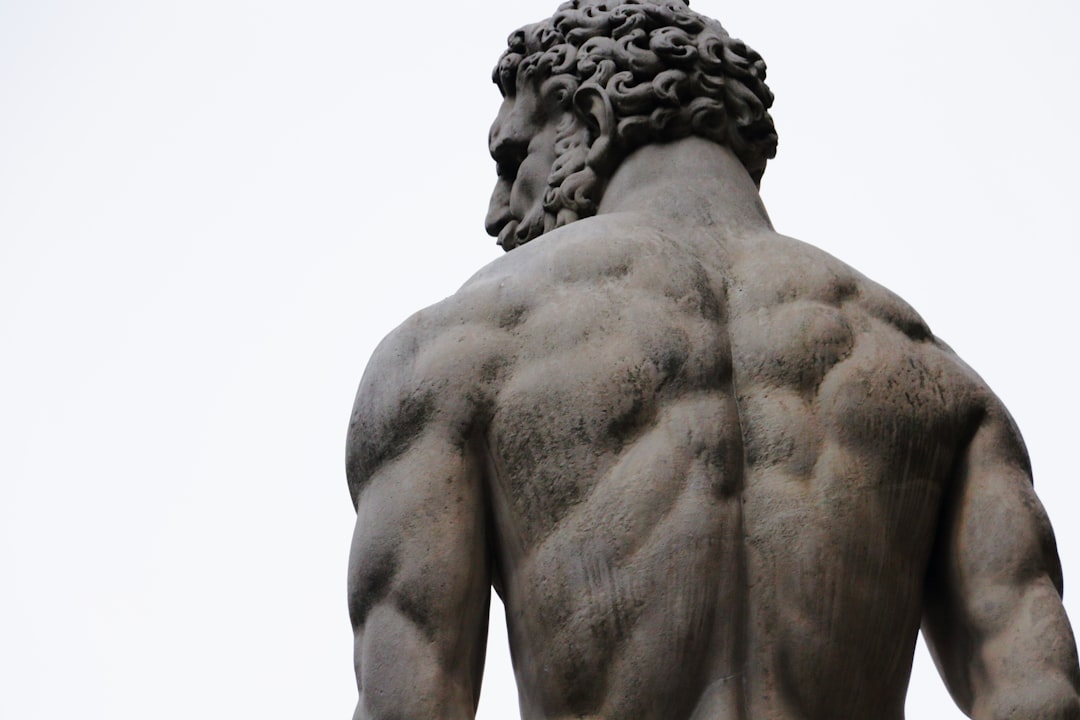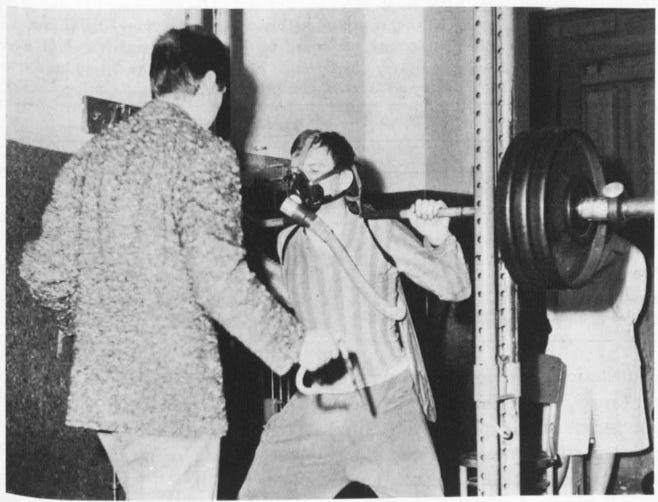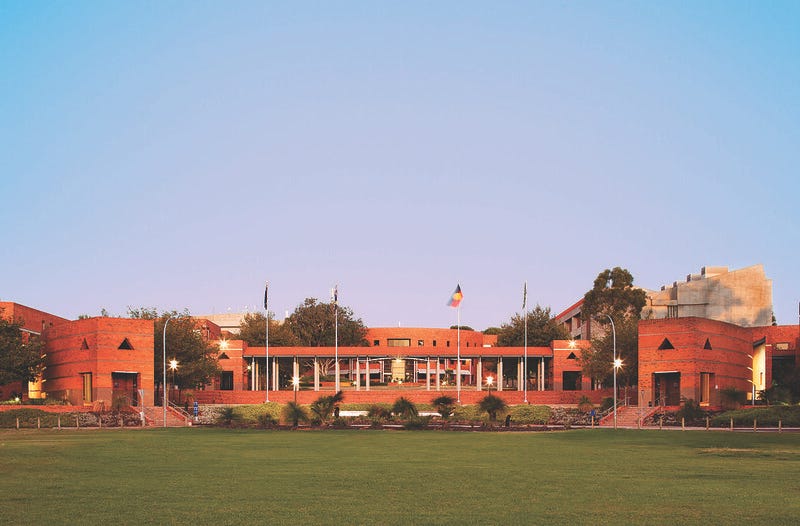Communist China and Exercise Science Publishing
Description
On October 13, I received an email from a master’s student of exercise science at the Shanghai University of Sport in China. The student’s name was Mingyue Yin.
Mr. Yin invited me to co-author a consensus paper about minimal dose exercise training. Minimal dose exercise training, which I have discussed previously at The Nuzzo Letter, is an amount of exercise that does not meet recommended exercise guidelines but that still has the potential to improve health and function. I was likely asked be a part of the consensus paper because of a review that colleagues and I published on minimal dose resistance exercise earlier this year.
I was not the only other researcher invited by Mr. Yin to co-author the consensus paper. The email was sent out to approximately 40 researchers. A couple of the names on the list were familiar to me. They were exercise researchers in Australia and the United States. However, most of the names, particularly the Asian and presumably Chinese names, were unfamiliar to me.
Mr. Yin’s invitation was collegial. His email provided clear instructions on what would be expected from invited authors to allow them to be co-authors on the paper. Mr. Yin’s email included attachments of the completed paper and a graphical abstract for the paper. The paper, including all tables, figures, and references, was 158 pages. Clearly, Mr. Yin had already done all the heavy lifting. He was merely asking invited authors to provide ratings of agreement with the summarised results and to review the paper more broadly.
In the minds of most researchers, irrespective of their academic rank, saying yes to Mr. Yin’s invitation is a no-brainer. Being an author on a consensus paper has many benefits. First, to be asked to part of a consensus paper is itself an achievement. It means that the invited author is being asked, based on their expertise, to help set the foundation for future thinking and practice related to the paper’s topic – in this case, minimal dose exercise training.
Second, being part of a large consensus with many international authors shows that the invited author has the potential or capacity for international collaboration – something that is highly valued by grant giving agencies and university employment committees.
Third, the consensus paper will be published in a leading journal. As Mr. Yin also stated in his email, he intends to submit the paper to Sports Medicine or the British Journal of Sports Medicine – two of the highest ranked journals in exercise and sports science. Publishing the paper in one of these leading journals will result in media attention and will also look good on the invited author’s CV and grant applications.
Fourth, because the paper is a consensus statement that will be published in a high-ranking journal, this means that the paper will be cited frequently. Frequent citation will then increase the invited author’s h-index, and the h-index is often included in job and grant applications.
Finally, the amount work and time that is required from the invited author, particularly in light of all the benefits just mentioned, is minimal. In fact, the tasks requested of co-authors by Mr. Yin can probably be completed within one day.
So, I accepted Mr. Yin’s invitation, right?
Having A Moral Compass
China, where Mr. Yin and his colleagues reside, is governed by the Chinese Communist Party (CCP). Communism is a sociopolitical system that rejects individual liberty, including freedom of speech and assembly. In addition to its lack of recognition of basic human rights, such as in Hong Kong, the Chinese government has been accused of stealing intellectual property from other countries for many years, and it has not been transparent about the origins of COVID-19.
As an advocate for individual liberty, I do not want to be associated with communism, the CCP, or its members, nor do I want the Chinese government to benefit from use of my name or expertise or to try to win influence over me or my employer in some way. Consequently, my willingness to accept the invitation that Mr. Yin extended to me hinged upon his research team’s affiliation with the CCP. As you will see in the screenshots provided, I responded to Mr. Yin’s invitation by asking him if he or his labmates were members of the CCP.
Initially, Mr. Yin tried to avoid my question, or perhaps he did not fully understand it. He asked if his answer would impact my willingness to be part of the paper. I told him, yes, though I did not tell him in what direction my decision would go. I asked Mr. Yin a second time if he was a member of the CCP.
In broken English, Yin eventually replied: “I am a glorious Chinese Communist Party. I joined the glorious Communist Party of China in the third year of undergraduate, and I am very proud of it. Thank you!”
Decision Background
I rejected Mr. Yin’s invitation because he is a communist, and I do not want to collaborate on research with communists. My decision was also influenced by observations that I have made of China in the academic publishing space, including China’s unclear relationship with the Journal of Sport and Health Science and with MDPI journals. My decision was also influenced by a recent conversation that I had with a Taiwanese researcher about China and also by Salvatore Babones’ chapter on China’s influence in Australian higher education in his book, “Australia’s Universities: Can They Reform?”
Let us start with Babones.
China’s Influence at Australian Universities
Salvatore Babones is an American. He is an Associate Professor of Sociology who lives in Australia and works at the University of Sydney. In 2021, Babones wrote a book titled, “Australia’s Universities: Can They Reform?” The book, which I highly recommend, is a critique of Australian higher education and how it can be reformed to better serve the Australian public interest.
One of the chapters in Babones’ book is titled, “Have Australia’s universities been corrupted by China?” In the chapter, Babones argues that Australia’s interests and values are at-risk by the current relationship between Aussie universities and China. Babones says that the relationships themselves do not imply “misbehavior on the part of the scientists involved” or “malpractice on the part of their universities.” Instead, Babones believes that the current relations between Chinese and Australian researchers create “structural risks” for Australian universities and thus the broader Australian community. More specifically, Babones argues that these relationships generate “strong incentives for Australian universities to acquiesce in Chinese practices and comply with Chinese demands.” Babones continues, “The real risk isn’t that China will steal Australian science. It’s that Australian universities will compromise their values in order to retain access to Chinese science.”
In his interview with John Anderson, Babones also explained that he believes that Australian universities will continue to police themselves as to not upset China. What might this mean in practical terms? Perhaps it means a university will be less likely to hire a professor who is critical of China or perhaps it will mean that a university will be quick to squash any campus activities that are critical of China.
Babones’ argument is intriguing and compelling. In recent years, I have also made observations that have caused me to be sceptical toward China in academia, particularly in the space of academic publishing. One of these observations involves the Journal of Sport and Health Science.
Journal of Sport and Health Science
The Journal of Sport and Health Science is becoming a prominent journal in the field of exercise and sports science. It was founded in 2012, and it is published by Elsevier – a major publisher of academic articles.
I discovered the Journal of Sport and Health Science several years ago when looking for a home for one of my research articles. At that time, I noticed something unusual about the journal. On its website, the journal stated that all its papers are published open access, but that authors do not have to pay an associated article processing fee. Normally, if an author wants to make their article free to the public, and retain the copyright to the article, the author (or the author’s institution) has to pay the publisher between $2,000 - $5,000 USD.
I wondered – who was footing the bill to Elsevier? Who was making it possible for authors to have their articles published at the Journal of Sport and Health Science without charge?
Then, I noticed on the journal’s website that Shanghai University of Sport – the university where Mr. Yin is based – is listed as the entity responsible for the journal’s peer review process. Apparently, Elsevier is responsible for producing and hosting the journal on behalf of the university.
Thus, it seems that the Chinese government is paying Elsevier to cover all open access costs at the
























